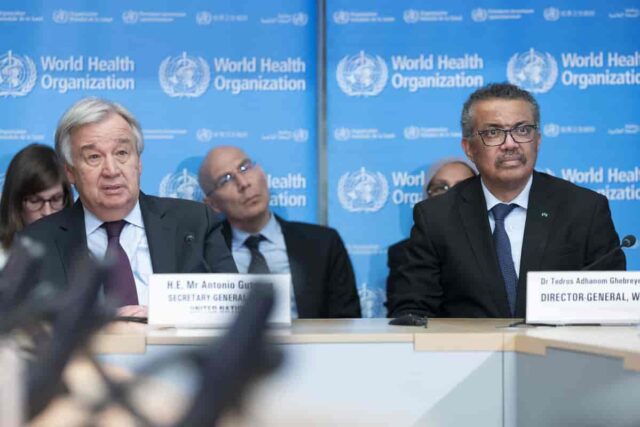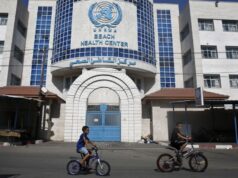A club that lets everybody in isn’t a club.
The UN lost any claim to being an international forum for democracy when the U.S. agreed to admit Stalin’s Soviet Union. The tossing of Taiwan for communist China was the death knell. Today, it uses the financial and political power of its committees to denounce democratic Israel.
Freedom House reports that South Sudan, Syria, Eritrea, North Korea, Equatorial Guinea, Central African Republic, Tajikistan, Afghanistan, Belarus, Somalia, China, Myanmar, and Yemen occupy the bottom rungs of the “free countries” ladder. The greatest one-year declines in freedom were registered in Burkina Faso, Ukraine, Tunisia, Guinea, Nicaragua, El Salvador, Hungary, Mali, and Russia. Eritrea and North Korea are at the top of the list of countries with slaves, according to the Global Slavery Index.
They’re all in the UN, with two on the Security Council. Afghanistan is on the UN Commission on the Rights of Women.
The UN Watch Database indicates that from 2006 – 2022, the UN Human Rights Council adopted 99 resolutions against Israel, 41 against Syria, 13 against Iran, four against Russia, and three against Venezuela. In the 2022 General Assembly there were exactly zero expressions of concern about Venezuela, Lebanon, Pakistan, Algeria, Turkey, China, Qatar, Iraq, or Saudi Arabia. There was one vote each against North Korea, Myanmar, Syria, Iran, and the U.S. (we were condemned for the embargo on Cuba — 185 yes, 2 no, 2 abstain).
Because, why not?
Such statements make small, nasty, and ineffectual countries feel important. They have no force of law — although they do affect UN spending — and there is, clearly no price for voting against Israel or the U.S. even by countries that have decent bilateral relations and that accept aid from both.
Thus far in 2023, Iran executed at least 192 people, including eight women, according to Human Rights Watch. Nevertheless, Iran was elected in May as chair of the UN Human Rights Council Social Forum. And this month, it was elected as one of five vice-presidents of 78th UN General Assembly Meeting as well as rapporteur of the UNGA Disarmament and Non-Proliferation Committee and a member of the committee’s presiding board.
Because, why not?
The World Health Organization (WHO) is an arm of the UN, following the UN script. The mission of WHO is the is “attainment by all peoples of the highest possible level of health.”
After years of Chinese influence peddling in the organization and years of obfuscation by Beijing over COVID virus origins, at the end of May, China’s sometimes-partner North Korea was elected to the Board of the WHO in a term that lasts until 2026. North Korea joins Afghanistan, Syria, and Yemen among others on a board that will determine the organization’s agenda and policy prescriptions, and how to spend the organization’s $2.1 billion annual budget, about $700 million of which comes from the U.S.
Right on cue, according to UN Watch, “The 76th World Health Assembly held a special debate on May 24 to single out Israel, which was condemned by Iran, Syria, North Korea, Russia, Venezuela and Cuba for allegedly violating the ‘health rights of Palestinians and the Druze population in the Golan Heights.’”
How is WHO managing the “health rights” of Syrians affected by chemical attack or Uyghurs in Chinese prison camps or Afghan women or Sudanese, Tigrayans, Ethiopians, or Nigerians affected by civil wars or militia attacks? And how bad off are the Palestinians?
In terms of life expectancy, at 74.5 years, they are above the world average of 71 years. On a graph, from 1960-65, prior to Israel’s acquisition of the West Bank and Gaza territories, the UN estimated Palestinian life expectancy at 48.7 years for both. It was 68 years In 1990. In 2010, it was 70.9 years in the West Bank and 69.9 in Gaza. (Note that women in all cases live longer on average than men.) Regarding infant mortality rates in the West Bank and Gaza, in 1975, it was 72.8 deaths per 1,000 live births. In 2002, it was 23.9. In 2021, 12.8 per 1,000 live births. (Gaza infant mortality has inched up since Israel’s departure from the Strip.]
When countries with no obligations — financial, moral or other — get together to denounce countries on a different and better trajectory, the United States should reconsider its financial and political support. Proportionate responsibility for determining the spending of proportionate contributions should be a minimal American criterion for remaining in a universal club with no rules.






